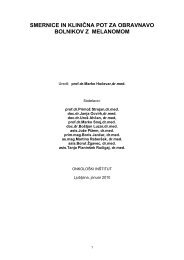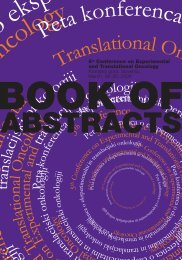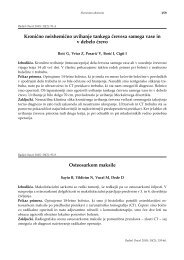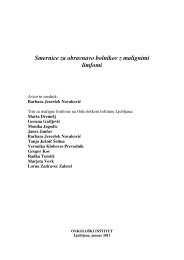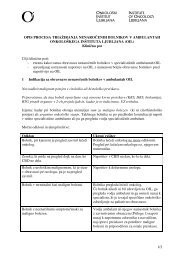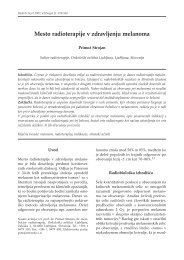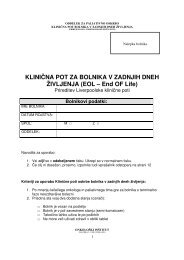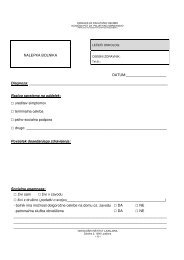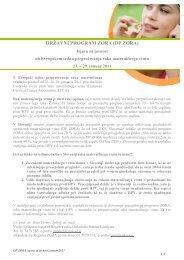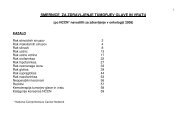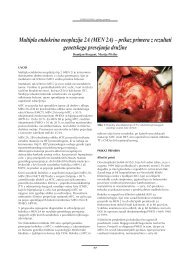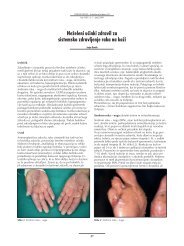Create successful ePaper yourself
Turn your PDF publications into a flip-book with our unique Google optimized e-Paper software.
l18<br />
33<br />
Complement resistance impairs anti-tumor therapy<br />
Thomas Konatschnig, Nicolas Geiss, Michael Kirschfink<br />
Institute of Immunology, University of Heidelberg, Germany<br />
Membrane-bound complement regulatory proteins (mCRPs; CD55, CD46 and CD59)<br />
protect normal cells from accidental damage by activated complement. During<br />
neoplastic transformation cells often gain complement-resistance by overexpression<br />
of one or more mCRPs, by secretion of soluble complement inhibitors or expression<br />
on their surface of complement degrading ecto-proteases. Complement resistance<br />
of tumour cells is a main hindrance for the efficiency of antibody-based cancer<br />
immunotherapy. Understanding the complex molecular mechanisms involved in<br />
tumour cell resistance to complement is essential for the development of strategies<br />
to interfere with these evasion mechanisms and a prereqioste for effective targeting<br />
complement-mediated cytoxicity to cancer cells.<br />
To better exploit complement for cancer cell eradication, it is therefore conceivable<br />
to reduce complement resistance either by neutralising mCRP function by specific<br />
antibodies or by gene silencing applying siRNA-technology.<br />
First results from both research lines indicate, that targeted interference with<br />
complement regulatory mechanisms efficiently promotes antibody–mediated<br />
cytotoxicity of malignant cells.



